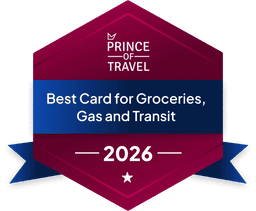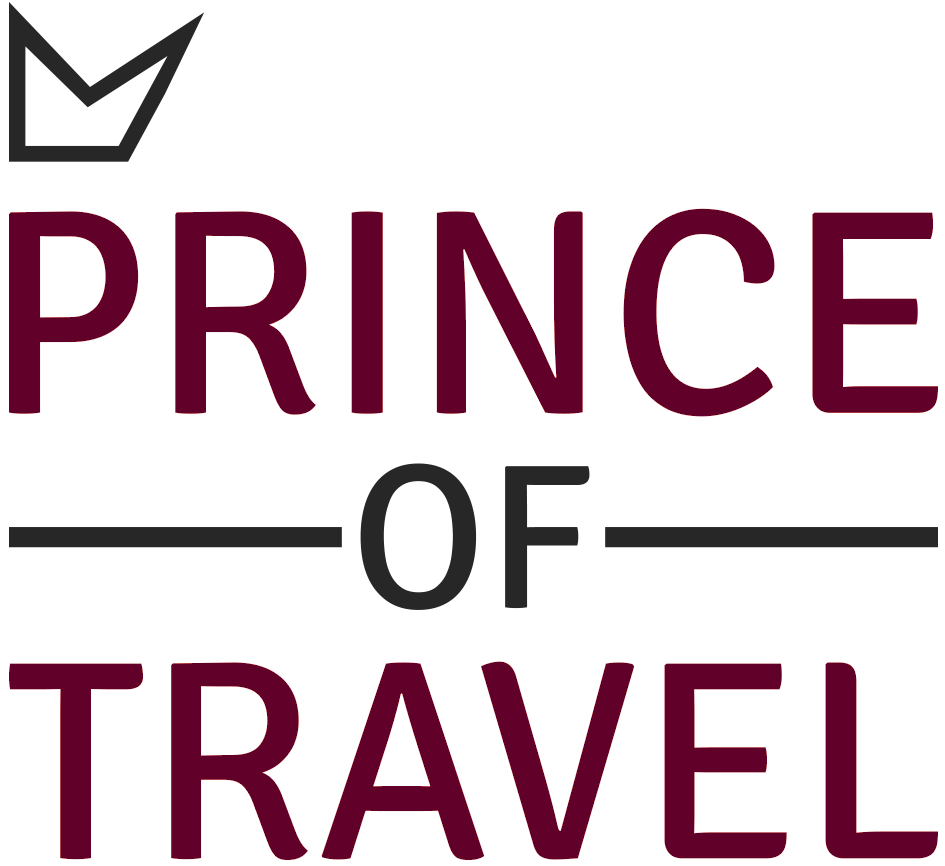Keeping Kids Humble as We Travel

I decided to take a break from my usual hotel reviews or destination guides and write on a topic that I’ve thought about a lot since we started travelling more frequently as a family using points.
I wear many different hats in life, but first and foremost, I’m a mom. And with that role comes some of the greatest challenges, including how I raise my kids to become good people.
Everyone’s definition of “good” will vary, but for me, a big part of it means wanting my kids to grow up appreciating life, respecting others, and never taking anything for granted. I want my kids to grow up with humility.
But how does this relate to travel? Travelling on points has changed the way we travel, mostly in good ways, but it can have ill effects, too, if we as parents aren’t careful.
Travel Will Never Be the Same
Since diving into the world of Miles & Points, our travel habits as a family have really changed.
Instead of taking a couple of trips a year, we’ve doubled, and sometimes even tripled, that amount.
Our kids have missed school to travel. We’ve sped through security, waited in comfortable lounges with free-flowing snacks and drinks, and bypassed the masses with priority boarding. My kids have also flown business class more times than I can count with one hand.

We’ve stayed at high-end places for which I may not otherwise have paid cash, and visited many destinations that many people only dream of. With elite status at hotels, we’ve received upgrades to enormous suites, and have had access to executive lounges and extravagant breakfast spreads.

The experiences have been amazing, and we’ve made some pretty awesome memories as a family. However, as parents, we always want to give our kids the best, but is the best always good for them?
Unintended Consequences of Travel
My mom was the first to question whether or not we were spoiling our kids. The concern is that these types of elevated travel experiences will be taken for granted and no longer be seen as a treat, but rather as an expectation.
And so, this got me thinking: are my travel habits setting my kids up for failure?
Sure, my kids will ask where the lounge is after security and whether we’re flying in those “fancy seats that can lie flat”, but otherwise, there aren’t any obvious signs of spoiled, arrogant monsters yet. In fact, flight attendants often have commented on how well-mannered and behaved they are on the flights, which is always nice to hear as a parent.
But the real test is in their reaction when they don’t get the elite treatment. Once in a while, I’ll purposely (or on occasion accidentally) forgo the elevated travel experience, maybe by skipping the NEXUS lane and standing in the regular line, waiting by the gate instead of popping into a lounge, or choosing to fly economy, just to watch their reaction.
To tell the truth, most of the time, I’ve ended up more discontented than they have!

There’s no denying that there’s an inherent risk of developing an elitist mindset and sense of entitlement in this hobby, and kids are just as susceptible to this as adults are.
However, there are ways that we can mitigate this risk, and keep our kids grounded and grateful each and every time we travel.
How to Foster Humility as a Travelling Family
I’m no expert when it comes to raising kids, but I can tell you that each child is unique, so there’s no single right way of teaching kids humility. You’ll probably have your own ideas on fostering humility, but this is how I’ve approached it with my kids.
Have humble beginnings. I spent most of my life travelling in economy on cash tickets. Remembering such beginnings keeps me appreciative of what I have now, and gives me the motivation to pursue new travel experiences.
If you’re just getting started in this game, then perhaps your kids have yet to experience the full benefits of this hobby. That’s great! Their past experiences will only give them more appreciation of what’s to come.

Recognize needs versus wants. Humble beginnings are also great in emphasizing that elevated travel experiences, as much as they’re desirable and enjoyable, certainly aren’t necessities. Deciphering needs from wants helps kids to prioritize goals, and fosters sustainable living habits for the future.
Keep them guessing. If your kids are well-travelled and have experienced the nicer side of things, then mix up your travel habits from time to time.
If you’re not in a rush, go in the regular lines once in a while. Mix in economy flights with premium cabins. Stay in a variety of accommodations, including those that don’t have status perks or all the bells and whistles that you’ve come to love and enjoy.

Keeping them guessing will also make elevated experiences less of an expectation and more of a surprise. I tell my kids to expect the worst and hope for the best.
When we travel as a family these days, there’s always chatter and betting games between them of where we’re sitting on the plane, and what our hotel room will look like once we open the door.
Sometimes it ends in disappointment, but that’s a reality in life that’s better experienced when they’re young. Regardless of the initial disappointment, I can’t recall a time when not sitting in a premium cabin or not staying in an upgraded room has ruined any of their trips.
Last year, we took our kids camping for the first time, which is the most “bare bones” kind of travel there is. They had just as much fun sleeping in a tent together and spending time with their friends around the campfire, as they did in an overwater villa in the Maldives.

When it ends in a pleasant surprise though, the pure excitement and joy that the kids express is amazing, and gives us all something really special to remember. The great thing about mixing things up is that you’ll see that joy over and over again.
Practise gratitude. Following the element of surprise often comes a chorus of “Thanks mom! Thanks dad!” It’s easy to be thankful when things go their way, but practising gratitude in all circumstances helps cultivate humility as kids focus on finding the positive in all aspects of their lives.
Gratitude also increases awareness of the kindness and generosity they receive from others.
In our family, we try to make a habit of sharing with each other the things we’re grateful for or making gratitude lists, in good circumstances and bad. So if that eUpgrade doesn’t go through or if the airport lounge is full, that’s just fine – at least we’re able to travel somewhere together.

Practise generosity. Acts of generosity involve redirecting our attention from ourselves to the needs and well-being of others. This shift in focus helps break the self-centred mindset that often accompanies feelings of entitlement.
Create opportunities for your children to serve others and give generously. Our family likes to participate in food drives during the holiday seasons, and once a year, we’ll do a litter clean-up around our neighborhood.

There are plenty of opportunities to do this while you travel, too. On our most recent trip to Japan, my daughter gave up her business class seat for a family friend who was sitting in economy.
When you’re at a destination, take time to meet the locals or participate in “voluntourism” programs. The Mālama Hawaiʻi Program is one such program, and it gives you a discount on your accommodation if you participate, too.

Have kids earn their travel. Maybe you’ve already booked your next trip to Disneyland, but you don’t need to let your kids know. Instead, reward them with it. Come up with some goals whereby reaching them results in going on a trip or sitting in a premium cabin.
The metrics will be different depending on your child’s age, but it can be anything from completing chores, to good behaviour, to good marks. Treat it like an “earn your way to status,” but for kids.

You can also set aside a travel money jar, to which kids can contribute a portion of their weekly allowance towards travel incidentals.
Explain the cost of travel. Sure, it’s easy enough to pack your bags, go to the airport, sit on a plane, and stay at a nice hotel, but what happens behind the scenes to get your kid there? If you’re paying cash, you’ve worked hard for that expendable income to go on a family trip.
If it’s on points, you’ve worked hard at keeping track of reloadable gift cards, signing up for various credit cards, and strategizing ways to maximize earning on your everyday spending.
And what about all the time spent planning the trip and researching how to book certain airlines or sweet spots? No trip takes shape without work, and kids should know that.
Teach kids the value of points. It’s hard to appreciate something if you don’t understand it and the value it has. The concept of points can be kind of vague and abstract to kids because it’s not something tangible that they can see.
Teaching kids about points doesn’t need to be complicated. A simple example of how many points you can earn on a $1 McDonald’s ice cream cone compared to how many points it would cost to redeem for a business class seat to Asia does the trick.
My kids were in awe of how many ice cream cones they’d have to consume before we could fly business class as a family. And more importantly, how much it would cost for us to buy that many ice cream cones.

Understanding the value of points and the work required to acquire them helps my kids appreciate the experience more.
Document your travels. Documenting our travels is great for cultivating gratitude. Now that I write about my travels online, documenting them has become easier.
Prior to this, I’d make photo books of all our trips. The kids loved looking back at the photos, remembering the good times, the silly moments, and even the not-so-good times.

Now I get our kids to journal about their travels as well. It helps them to reflect on their experiences, gain perspective, and become more attuned to the abundance in their lives, all of which cultivate a deeper appreciation for the world around them.

Conclusion
I love to travel, and I’m forever grateful for how Miles & Points has allowed me to visit amazing places and experience things I didn’t think would be possible. I can only hope that my kids will grow up having this same appreciation.
Coming from rather humble travel beginnings, I’ve certainly been able to keep things in perspective. My kids won’t have quite the same start, but there are still plenty of strategies that we as parents can employ to curb the development of an elitist mentality and prevent our kids from taking things for granted.
You’ve learned some of my strategies, now how about yours? Feel free to share them in the comments below.

Amy is an avid traveller and having three kids has not slowed her down. Through leveraging travel rewards, she continues to explore the world with her family in a fun and memorable, yet affordable way.
First-year value
$336
Monthly fee: $15.99
• Earn 1,250 points per month upon spending $750 per month for 12 months
Earning rates
Key perks
- Transfer to airline and hotel partners

Monthly fee: $15.99
• Earn 1,250 points per month upon spending $750 per month for 12 months
Earning rates
Key perks
- Transfer to airline and hotel partners





